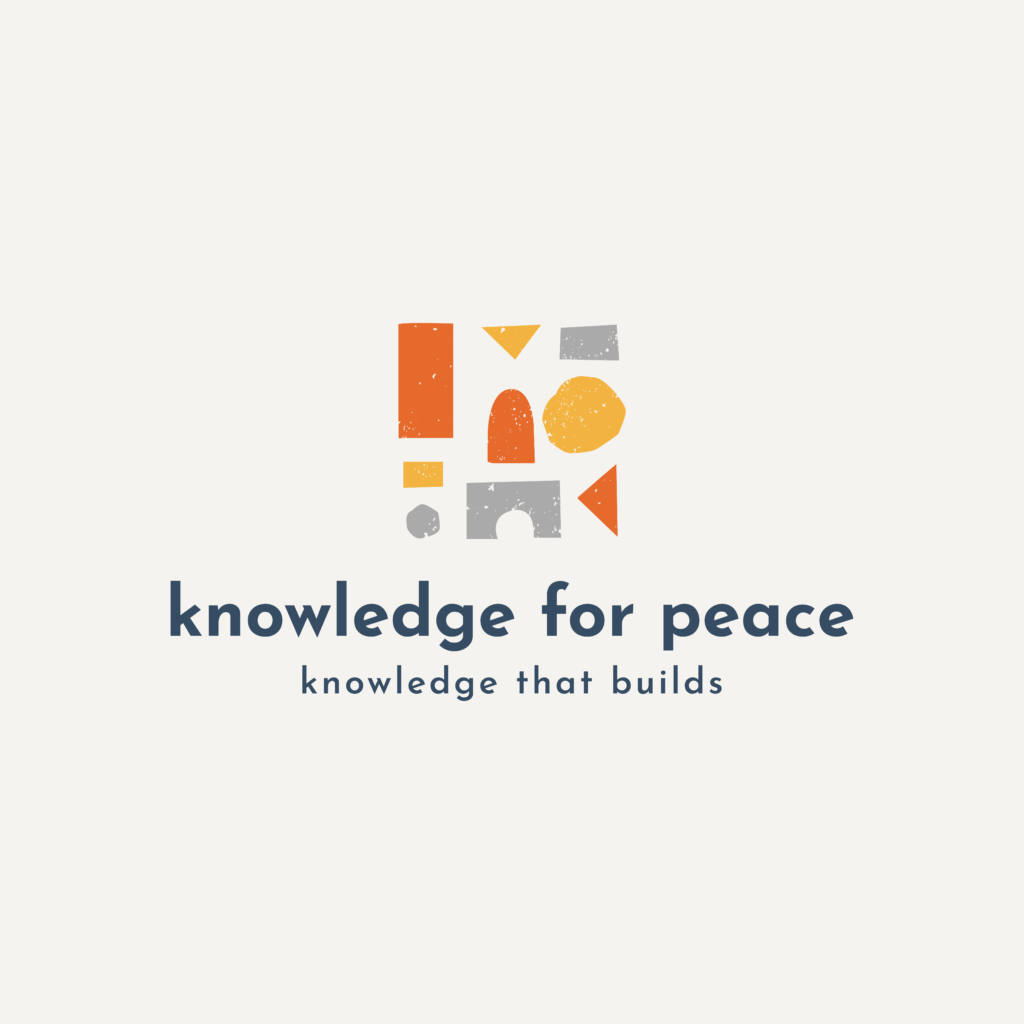Theory of Change
Goal
To use knowledge as a tool for peacebuilding in the Arab world by engaging youth (ages 18-30) through reflective content, drawing on lessons learned from non-Arab post-conflict environments.
Context and Rationale
The Arab world, particularly following the post-2011 Arab Spring movements, has faced extensive intra-state unrest, conflict, civil wars, and social movements. These events have left the region deeply traumatized and polarized, creating an environment where direct discussions on these topics can be contentious and inflammatory. Therefore, a delicate yet impactful approach to peacebuilding is necessary.
The Knowledge for Peace platform addresses this by focusing on non-Arab countries that have undergone similar violent intra-state conflicts. Nations such as Northern Ireland, Rwanda, East Timor, Cambodia, Argentina, and Chile offer critical lessons from their journeys through conflict, reconciliation, and peacebuilding. By showcasing these examples, the platform provides Arab youth with a neutral, reflective space to learn, draw parallels, and discuss peacebuilding strategies without sparking defensive or divisive rhetoric.
Theory of Change Statement
By creating and sharing reflective content that highlights the peacebuilding experiences of non-Arab countries, Arab youth (ages 18-30) will gain access to valuable lessons and frameworks for peacebuilding that are less likely to provoke polarization or trauma. This content will encourage critical thinking and empower youth to draw relevant parallels, applying these lessons to their contexts and fostering a culture of dialogue, understanding, and peace in the Arab world.
Key Assumptions
- Youth Engagement: Arab youth are willing and eager to engage with non-polarizing perspectives on peacebuilding.
- Neutral Learning Environment: Using non-Arab examples offers a safer space for learning and discussion, minimizing the risk of defensive reactions.
- Relevance of Lessons Learned: The peacebuilding journeys of other nations provide valuable lessons that Arab youth can adapt to their unique circumstances.
- Influence of Knowledge on Behavior: Exposure to diverse peacebuilding narratives will shift youth perspectives toward more peaceful and constructive approaches to conflict resolution.
Activities
The platform will create and disseminate multimedia content (articles, videos, podcasts) that highlights lessons from non-Arab post-conflict environments, tailored to the needs of Arab youth. It will facilitate interactive online workshops and webinars where experts, peacebuilders, and survivors from these nations can share their experiences. Additionally, it will foster collaborative learning spaces, giving youth the chance to reflect, discuss, and share their thoughts. Peer education will be emphasized, empowering local peacebuilders by providing them a space to share their experiences. A mentorship and peer support program will connect experienced peacebuilders with Arab youth, facilitating deeper discussions on peace and reconciliation.
Outcomes
- Short-Term: Increased awareness and understanding among Arab youth about peacebuilding and conflict resolution practices in other global contexts.
- Medium-Term: Development of critical thinking and analytical skills, enabling youth to apply lessons learned to their local contexts in a non-polarizing way.
- Long-Term: Contributing to a growing culture of peace, dialogue, and understanding, empowering Arab youth to become peacebuilders and advocates for non-violent conflict resolution.
Through the transformative power of knowledge and learning from global experiences, the Knowledge for Peace platform seeks to plant seeds of hope, dialogue, and sustainable peace across the Arab world.

